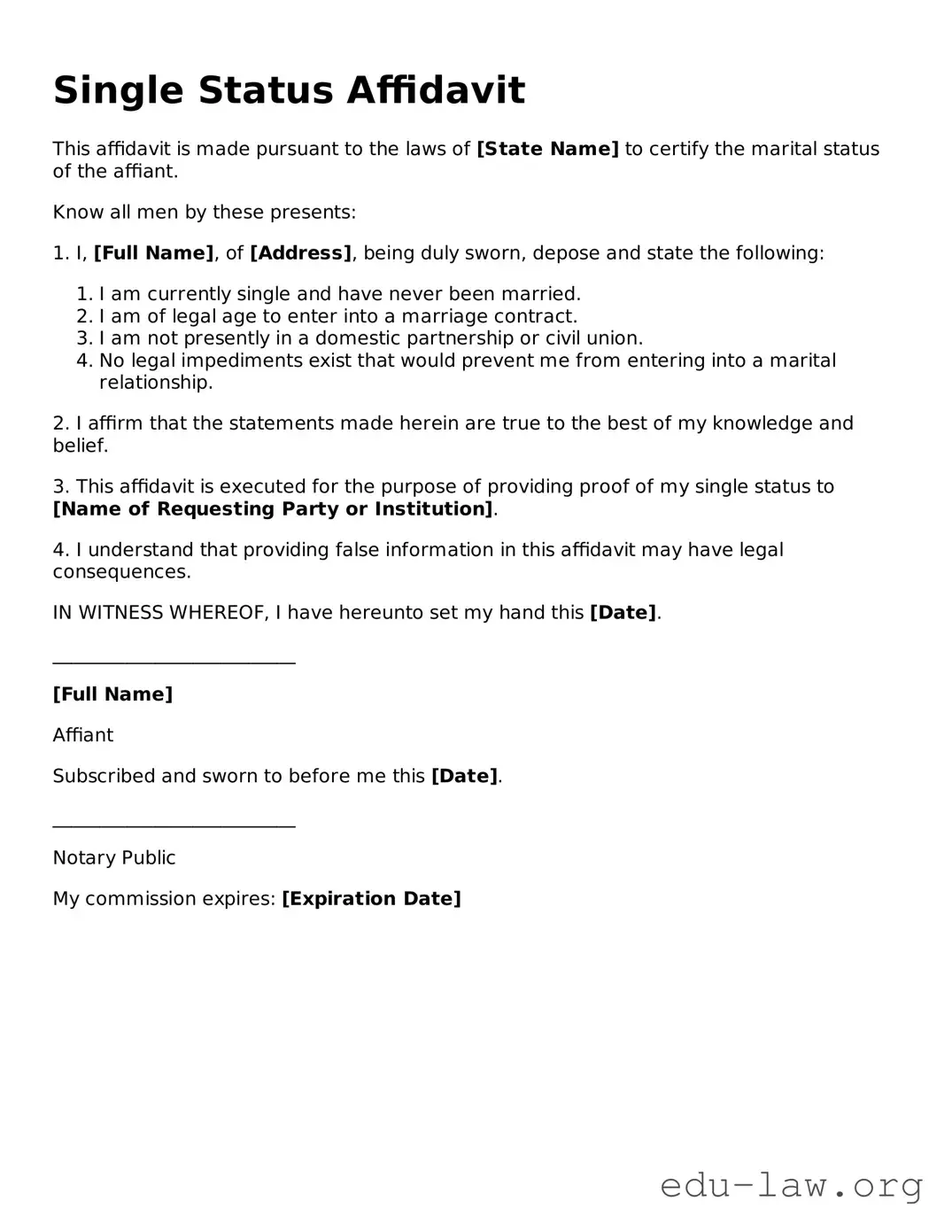Single Status Affidavit
This affidavit is made pursuant to the laws of [State Name] to certify the marital status of the affiant.
Know all men by these presents:
1. I, [Full Name], of [Address], being duly sworn, depose and state the following:
- I am currently single and have never been married.
- I am of legal age to enter into a marriage contract.
- I am not presently in a domestic partnership or civil union.
- No legal impediments exist that would prevent me from entering into a marital relationship.
2. I affirm that the statements made herein are true to the best of my knowledge and belief.
3. This affidavit is executed for the purpose of providing proof of my single status to [Name of Requesting Party or Institution].
4. I understand that providing false information in this affidavit may have legal consequences.
IN WITNESS WHEREOF, I have hereunto set my hand this [Date].
__________________________
[Full Name]
Affiant
Subscribed and sworn to before me this [Date].
__________________________
Notary Public
My commission expires: [Expiration Date]
